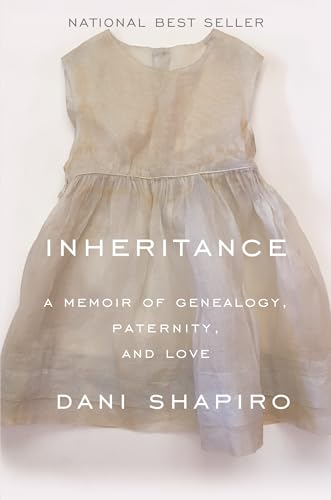Because my own book was released in March, and because I’ve never done this before—the tour, the interviews, the reviews, my teaching jobs, all at once—my 2019 reading was terribly inconsistent, with jags and starts, some devoured-in-one-sitting-books and some long-plane-ride-crying-books and many books I had to abandon because they made me feel too sad or too jealous or too dark or they made my mushy brain work too hard. I let go of any book that lacked sincerity in 2019; I plan to maintain that rule. Still, I’ve never in my life felt more grateful to return to words at the beginning or end of my days, to sit still and awed at the marvelous work of others and remember the only point of my little life: that zing, that achey divine something that comes when you fully believe the world someone has created for you and then your own bedroom or hotel room or subway car feels a little more romantic and detailed and bright because of it. Here’s a very incomplete list of works that made my year immeasurably better.


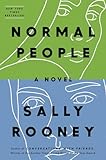


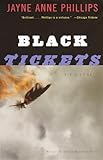


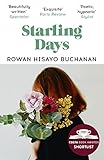

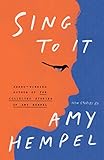 Dani Shapiro’s Inheritance and Sarah McColl’s Joy Enough made me feel cared for the way some books do, books that answer the particular questions you’ve been gripping at, that seem to say I know, yup, I hear you. Jaquira Díaz and Kristen Arnett’s powerhouses, Ordinary Girls and Mostly Dead Things, respectively, reminded me of home, of the fire and weird wonder of where we’re from, the sweaty creeping queer-as-fuck Florida I most want to read about. Both of Sally Rooney’s books felt like goddamn candy after long days, and Jesus she is funny as shit and I feel like people miss that when talking about her.
Dani Shapiro’s Inheritance and Sarah McColl’s Joy Enough made me feel cared for the way some books do, books that answer the particular questions you’ve been gripping at, that seem to say I know, yup, I hear you. Jaquira Díaz and Kristen Arnett’s powerhouses, Ordinary Girls and Mostly Dead Things, respectively, reminded me of home, of the fire and weird wonder of where we’re from, the sweaty creeping queer-as-fuck Florida I most want to read about. Both of Sally Rooney’s books felt like goddamn candy after long days, and Jesus she is funny as shit and I feel like people miss that when talking about her.
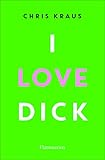


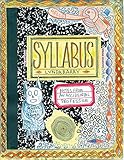
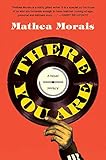


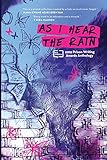

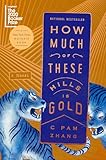
 Esmé Weijun Wang’s The Collected Schizophrenias read like a tremendously generous guide on how to be a better person, a greater listener, and Starling Days by Rowan Hisayo Buchanan did the same. I listened to Danielle Lazarin’s Back Talk on audio and texted her whenever the actor mispronounced our Inwood street names, but jokes aside Danielle’s work reads like a hug (a really fucking smart hug? what does that mean?) and I’m so grateful to her and every writer writing High Goddamn Serious Literature about Girlhood. Fuck yes.
Esmé Weijun Wang’s The Collected Schizophrenias read like a tremendously generous guide on how to be a better person, a greater listener, and Starling Days by Rowan Hisayo Buchanan did the same. I listened to Danielle Lazarin’s Back Talk on audio and texted her whenever the actor mispronounced our Inwood street names, but jokes aside Danielle’s work reads like a hug (a really fucking smart hug? what does that mean?) and I’m so grateful to her and every writer writing High Goddamn Serious Literature about Girlhood. Fuck yes.
I reread the stories of James Salter and Jamaica Kincaid and Elizabeth Bishop and Kenzaburo Ōe because sometimes I forget how to write a sentence, and marveled at Amy Hempel’s new collection Sing to It, which, like all of Hempel’s work, changes its terms on you so quickly, sometimes between two little words, in ways that’ll knife-twist your dumbly blinking face. For my classes I read and reread Outline by Rachel Cusk, We the Animals by Justin Torres, I Love Dick by Chris Kraus, Territory of Light by Yuko Tsushima, Mean by Myriam Gurba, Sleepless Nights by Elizabeth Hardwick, and Syllabus by Lynda Barry (my queen, my hero, my everything).
I fell asleep most nights to Daphne du Maurier’s Rebecca. Once upon a time I fell in love with writing because of Jayne Anne Phillips’s collection Black Tickets, and this year Kimberly King Parsons’s Black Light made me feel that same pang of joy-shock when words are so charged they carry their own vibrations. Miriam Toews’s Women Talking made me feel like oh, that’s how a genius does this, and same for Chelsea Bieker’s forthcoming cult-novel (no, literally, it’s about a fucked-to-the-hills birthing cult) Godshot, which is the kind of novel that comes around every decade, maybe, the kind of book that made me feel it was meant for me (is there a greater feeling than that?).
Rick Moody’s memoir The Long Accomplishment was so graceful and so packed with heart and wisdom and sincerity, and Mathea Morais’s There You Are made my heart hurt in similar lit-up ways. I am stunned by the beauty of Chanel Miller’s writing in Know My Name (people will talk about the story, the headline; I want to talk about her prose), and, on that note, Carrie Goldberg’s Nobody’s Victim should be required reading for all. I was fortunate enough to read and perform the texts from As I Hear the Rain, PEN America’s 2019 American Prison Writing Anthology, which is a miraculous cross-genre collection of really great really urgent writing.
Cyrus Grace Dunham’s A Year Without a Name is another life-changing world-warping (really, I’m obsessed) book I’ve now read and reread several times this year, with writing and imagery so lush and so good it’ll leave you hot and choking on vines. It’s still November, and I’m making my way through my final books of the year, but I can tell you Brandon Taylor’s Real Life, Garth Greenwell’s Cleanness, C Pam Zhang’s How Much of These Hills Is Gold, and Genevieve Hudson’s Boys of Alabama have me rotating through them so none will end too soon. Taylor’s writing the best prose out there; Greenwell’s got a sex scene in this one that left me WEEPING; Zhang’s golden epic will be an instant classic; Hudson is rewriting the fairy tale, rewriting the body, with sentences like spun dirt and knuckle and all things true.
Lastly, I must shout out the many, many yet-to-be-published book manuscripts of my students, books that have left me as breathless as I am hopeful for the landscape to come. How grateful I am.
More from A Year in Reading 2019
Don’t miss: A Year in Reading 2018, 2017, 2016, 2015, 2014, 2013, 2012, 2011, 2010, 2009, 2008, 2007, 2006, 2005
